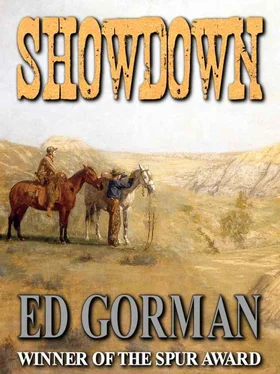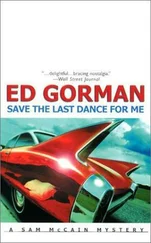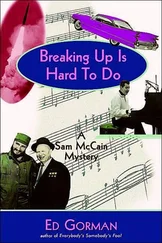Ed Gorman - Showdown
Здесь есть возможность читать онлайн «Ed Gorman - Showdown» весь текст электронной книги совершенно бесплатно (целиком полную версию без сокращений). В некоторых случаях можно слушать аудио, скачать через торрент в формате fb2 и присутствует краткое содержание. Год выпуска: 2012, Издательство: Crossroad Press, Жанр: Старинная литература, на английском языке. Описание произведения, (предисловие) а так же отзывы посетителей доступны на портале библиотеки ЛибКат.
- Название:Showdown
- Автор:
- Издательство:Crossroad Press
- Жанр:
- Год:2012
- ISBN:нет данных
- Рейтинг книги:3 / 5. Голосов: 1
-
Избранное:Добавить в избранное
- Отзывы:
-
Ваша оценка:
- 60
- 1
- 2
- 3
- 4
- 5
Showdown: краткое содержание, описание и аннотация
Предлагаем к чтению аннотацию, описание, краткое содержание или предисловие (зависит от того, что написал сам автор книги «Showdown»). Если вы не нашли необходимую информацию о книге — напишите в комментариях, мы постараемся отыскать её.
A Spur Award-winning Author
Tom Prine figured that a stint as deputy in a backwash town like Claybank would give him a nice rest. Until, in the space of just a few days, arson, kidnapping and murder turn Claybank into a dangerous place Prine no longer recognizes. A lot of old secrets are being revealed and at their core is a single nagging question - is anybody in town who they pretend to be? Prine doesn't have long to find the answer...
Showdown — читать онлайн бесплатно полную книгу (весь текст) целиком
Ниже представлен текст книги, разбитый по страницам. Система сохранения места последней прочитанной страницы, позволяет с удобством читать онлайн бесплатно книгу «Showdown», без необходимости каждый раз заново искать на чём Вы остановились. Поставьте закладку, и сможете в любой момент перейти на страницу, на которой закончили чтение.
Интервал:
Закладка:
Prine thanked him for the directions but not the humor.
There were a thousand thousand Vernes in the New West. Transplanted easterners who'd come west for excitement and ended up tending bar or peddling all kinds of bullshit new products to housewives they daydreamed of humping if the husband wasn't around.
Verne Jenkins was easy to spot because of the silk robe. Only a man from the East would wear a black silk robe with little yellow dragons stitched into it. Nothing effeminate about it. Just too fancy by half was all. A last vestige of Verne Jenkins's life in the East.
He invited Prine in. One big room that was half living room, with a horsehair couch, a small bookcase, and a wooden table covered with liquor of various kinds. Framed photographs of New York covered the walls. A messed double bed took up most of the back half of the room. His closet was a piece of clothesline strung from one angle of a wall to another.
He said "Yeah, me 'n' a couple of the regulars were talking about him just last night."
"Woodward?"
"Umm-hmm. Two nights ago, he asked directions to Stone Lake and said he'd be back in here around ten."
"He say why he was going to Stone Lake?"
"Said he had business was all. He didn't mind telling you that he was an investigator. Sometimes those boys play it pretty close to the vest."
"You ever see him with anybody else?"
"Nope. Never did. I mean, he'd talk to the regulars and me. But no, never saw him come in or leave with anybody else."
"Anybody ever ask you questions about him?"
Jenkins, a heavyset man with thinning gray hair and some kind of small birthmark on his right jaw, thought for a time and said, "No. Not that I can think of."
"How was his mood the last time you saw him?"
Jenkins shrugged. "About the same as always. Talked about his wife and kids. Talked about how he was going to put up a fence when he got home." Jenkins laughed. "He said the only enemies he had in the whole world were the damned gophers on his property."
"Anybody in your place take a dislike to him ?"
"There wasn't anything to dislike, Deputy. He was a nice, steady guy. Friendly to everybody. Didn't drink too much, talk too much, or argue with anybody. I'd have to say he was just about the perfect customer."
"You remember if he was carrying anything with him before he went to Stone Lake?"
"Carrying?"
"Briefcase. Manila envelope. Anything like that."
Jenkins snapped his finger. "I nearly forgot. I got real busy serving people. He got sort of isolated down at the far end of the bar. He only had the one beer. Which was like him. He still had work to do, so he wasn't going to get all drunked up the way some people did. He told me once that when you were your own boss you had to be stricter with yourself than if you had a regular boss. Or you'd fail. And that's true. My business isn't any different. I could slough off, get in a conversation, let customers wait a long time for their drinks. But I can't. I wouldn't have any business if I did."
"You were going to tell me something you said you forgot."
Jenkins laughed again. "It's early in the morning for me. I played poker till dawn. After the saloon closed. What I forgot, anyway, was the envelope."
"He had an envelope?"
"Little one. The size you use for personal mail. Like if you were writing a sweetheart or something."
"Where did he have it?"
"Lying on the bar. Just kind of staring at it."
"He say anything about it to you?"
"Not a thing."
"Where was the envelope the last time you saw it, Mr. Jenkins?"
"He was putting it away in his pocket."
"You sure he didn't say anything to you?"
"Nothing. And I was kind've curious about it. I've got a curious nature as it is. And so when I see somebody like Woodward just staring down at this letter in real deep thought—"
"When he was staring, did he look upset?"
"Not upset exactly—thoughtful, I'd say. That's the right word, I guess. Thoughtful."
Ten minutes later, the desk clerk let Prine into Woodward's room.
Nothing untoward. Everything neat, orderly, as befitted a man everybody described as calm and orderly.
"I need to get back downstairs. If you need anything I'll be at the desk."
"Thanks."
Prine spent the first fifteen minutes going through Woodward's two carpetbags. A large number of family photos filled one bag. This was one true family man. And one who apparently dearly missed his wife and kids when he was away from them. Kids posing with a baseball bat, a jack-o'-lantern, next to a snowman, standing in their school classroom; mom, a plump and pretty woman, at various ages, roughly twenty to late thirties or so, in a variety of poses, expressions, and garments. Very few of Woodward himself. Stocky man with a somber but not unfriendly face. The eyes shrewd and intelligent. Except for maybe fifteen pounds, he didn't look much different at forty or so than he had when he was twenty.
Prine next went through two large ledger books where Woodward had notes on cases dating back two years. He was indeed in Claybank investigating possible arson at the Pentacle Mattress plant. Prine remembered the case. The local fire chief—admittedly an amateur—hadn't found anything queer about it. But Woodward was a professional. If there was something to be found, his pride and instincts and wisdom would lead him to it.
Prime wasn't exactly sure what he was reading—Woodward used a lot of technical jargon—but the parts he could understand signified that Woodward had no doubt he was dealing with arson.
Prine stayed half an hour in all. The most useful things were the notes he found relating to Pentacle. Not that he could understand most of them.
When you walked in the front door of Pentacle, you were standing about four feet from a desk where a woman whose severe black dress gave her the look of an Amish lady pounded on a typewriter.
"May I help you?" she asked.
Or tried to. Because over her words came a harsh cry and another female voice, younger, more refined, shouting, "Of course you don't worry about my family's reputation. That's because you came from a family that never had a good one."
She appeared moments later, a strawberry blonde of early middle age, whose face was lush with a matronly sexuality that was endorsed by beautifully shaped breasts beneath her light blue dress.
She was crying. "I'm sorry about this, Mae," she said to the receptionist. "I shouldn't have come down here."
Mae smiled sympathetically and said, "That's quite all right, Mrs. Duncan. We all have family squabbles sometimes."
Mrs. Duncan glared at Prine as if he had no right to be here—hell, no right to exist here or anywhere else—and then hurried through the front door.
After a minute, Mae said, quietly, "Let's start over. May I help you?"
Athirtyish man Prine had seen at the recital last night said, "Please tell Mr. Woodward for me that I'm sorry I wasn't nicer to him. My wife was under the weather and I was worried about her, so when he came out here—"
This was the wife who'd just fled his office. It was the only time he mentioned her.
Aaron Duncan was the owner of Pentacle. He had the city suit, the city talk, the city disdain in the city eyes—and Prine didn't like him especially.
Duncan's office was now in the upstairs of the Claybank Trust Company. He had explained that these would be his quarters until the factory could be rebuilt.
"You saw him when, Mr. Duncan?"
"Monday morning. What a way to start a Monday, huh? Your wife is sick and some investigator is all but accusing you of arson."
"So it wasn't arson?"
The city eyes were angry, but the city mouth remained sociable. "Of course it was arson, Deputy Prine. When I was a child, that's all I ever wanted to be—an arsonist. You can ask my folks. They'll tell you. I loved fire. I burned down everything I could find. So of course I couldn't wait to burn down my own factory." He smiled with great unconcealed hatred and arrogance. "I'm not smart enough to be an arsonist. I can't pound a nail in straight. I can't fix my little boy's bicycle when the chain comes off. His mother can fix it, but I can't. I even burn myself when I light my own cigars, Deputy Prine. Now, does that sound like I'm an arsonist?"
Читать дальшеИнтервал:
Закладка:
Похожие книги на «Showdown»
Представляем Вашему вниманию похожие книги на «Showdown» списком для выбора. Мы отобрали схожую по названию и смыслу литературу в надежде предоставить читателям больше вариантов отыскать новые, интересные, ещё непрочитанные произведения.
Обсуждение, отзывы о книге «Showdown» и просто собственные мнения читателей. Оставьте ваши комментарии, напишите, что Вы думаете о произведении, его смысле или главных героях. Укажите что конкретно понравилось, а что нет, и почему Вы так считаете.












